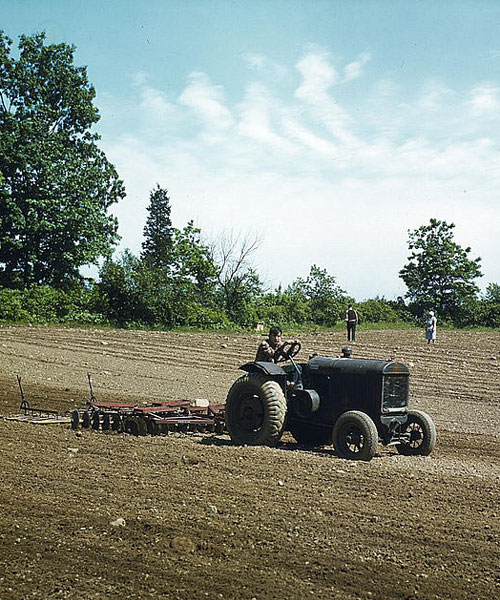
I’ve always written high-quality sentences, prepared with the finest grammatical ingredients. In the coming year, I’m raising the bar even higher: I’ll be offering only artisanal words, locally grown, hand-picked, minimally processed, organically prepared, and sustainably packaged.
Readers no longer know where the words they read and hear come from, how they’re produced, or who produces them, but I’m going to help change that, because good artisanal writing begins with healthy local materials. For nouns, I’m going to a nearby family-owned farm, where Anglo-Saxon and Latinate varieties are raised free-range, grass-fed, and entirely hormone-free. The farmers will regularly replenish my stocks with deliveries by bicycle, ensuring that these words ripen on the page, not in a cargo hold in the middle of the Pacific.
Getting fresh, organic verbs used to pose a challenge, because of the unusual way they propagate. Yet once I began searching out indigenous varieties of words, I was surprised to find all sorts that aren’t known outside the local area. There’s a small, family-run verb operation that conjugates them in small batches, the old-fashioned way. I also stumbled across a number of hard-to-find heirloom verbs that haven’t been seen in urban markets for 100 years, because their flesh bruises too easily, and because they don’t fit the cosmetic ideal. Let’s face it: An English verb grown in Chile may look perfectly connoted, but its pulpy taste can’t compete with the pungent verve of a local specimen, and who cares if it won’t win beauty contests?
As for pronouns, prepositions, and other function words, I’ll source them from parts of the state where the raw materials are cheaper and close at hand, through a wonderful fair-trade cooperative that is already exporting conjunctions and pronouns to China and will try to expand into the huge Asian market for articles and auxiliary verbs. I’m going to do my part to see the American function-word industry get back on its feet.
A century ago, writers in major cities like Boston and New York had all the function words they needed grown less than 100 miles away, but now 95% of them are imported. Did you know that the typical auxiliary verb has to travel more than 1,500 miles to reach the writer who uses it? As the world has become more interconnected, it’s become frighteningly easy to ship words from nearly anywhere, and they often cost more to read than to deliver. The rise of cheap, factory-produced, highly processed words has led to a rise in unhealthy reading, and has also damaged local systems of word production that once were our nation’s pride.
Sometimes I will serve word in pure form, with no inflection like plural or verb end, to make them easy to digest, have more nutrition value, and bring out their natural flavor. We’ve also become addicted to cheap punctuation and too accustomed to hyphens and colons in the winter and parentheses and backslashes in the summer, and this has distanced us from natural cycles and put us out of touch with the rhythms of our local environment. From now on, I’ll only be punctuating in season. I will proudly be sourcing my punctuation from wild managed populations that are culled the traditional way: by native virgins in birchbark canoes and because of a shortage of birchbark canoes the prices of these hand-gathered commas periods and semicolons can be slightly higher so to keep the costs to my customers low I’m going to eliminate unnecessary punctuation which the reader may notice in longer sentences.
Another important feature of my artisanal offerings will be to strike a balance between words in their raw, natural state and cooking and processing them. Sometimes I will serve word in pure form, with no inflection like plural or verb end, to make them easy to digest, have more nutrition value, and bring out their natural flavor.
One more exciting development: In recent years it’s been fashionable to eschew metaphors, analogies, symbols, and other figurative language—I flirted with literalism myself in college, and I count many literalists as very good friends. There are many reasons to become a literalist, the main one being the criticism of corporate figurative farming, in which unhealthy metaphor and similes are force-fed, pumped up with drugs, crammed into cages, and slaughtered with mechanical devices. You don’t have to believe that metaphors have souls in order to find this mode of literary production distasteful, even unethical.
But if you’ve ever sliced into a juicy symbol, you know there’s nothing in the world that tastes like it, so I’m a proud participant in a new model of figurative farming that’s humane and ethical. Right now, I’ve got a young metaphor up at a farm and I visit regularly to feed it and make sure it’s being raised humanely. When the frost turns the leaves in the autumn, I’ll butcher the metaphor, which I’ll photograph and blog about, with recipes.
Also, I recycle.


